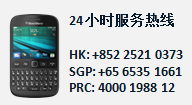Canada

24 hour notice for Canada
Canada will be putting into place starting, 19 April 2004, the so-called "24 hour rule" which will require carriers and freight forwarders to electronically report cargo and conveyance data prior to arrival of the cargo and the vessel in Canada. The reporting is to enable the Canada Border Services Agency (CBSA) to identify goods of an unknown or high risk. The Advance Commercial Information (ACI) is similar to the US's Automated Manifest System (AMS). Both of these initiatives were developed in conjunction.
Under the ACI initiative the ultimate responsibility for reporting falls on "marine carriers", a term which has yet to be defined by the CBSA. Indications are this may mean only the registered owner of the vessel as there is no mention that the responsibility extends to charterers or other disponent owners. However, time charterers will need to make certain that the cargo and conveyance data are electronically transmitted to the CBSA in order to avoid delays to the vessel on account of improper reporting. In practice, the vessel's agent will most likely transmit the cargo and conveyance data directly to the CBSA.
In order to transmit the data, each carrier will need a "œcarrier code" which will identify the carrier in question. The carrier will also have to post a bond in order to secure payment of duties, taxes, and other charges including penalties incurred for failing to comply with the ACI programme. The nature and amount of any bond, however, has not yet been established. Freight forwarders, who may not wish to divulge information to carriers or their agents, may apply for their own “carrier code†and may electronically transmit this information directly to the CBSA.
The CBSA's website provides details on how the information can be transmitted (www.cbsa-asfc.gc.ca/import/advance/faqs-e.html). It should be noted that the CBSA will allow third party service providers to transmit the required information on behalf of the carrier for a fee.
The ACI requires the marine conveyance data to provide details identifying the vessel, its capacities, and scheduling and routing information. The cargo data to be filed requires a "detailed commodity description". The descriptions must be in plain language, and details enough to allow CBSA officials identify the size, shape, and characteristics of the commodity to the ship. Consequently, general descriptions such as "apparel", "electronics", and “quipment” are not acceptable and should be replaced with more specific terms such as “clothing”, “personal-household electronics”, “automotive equipment” for example.
The most important feature of the ACI is the time frame for reporting the conveyance and cargo data. At this time, US loaded cargo is not subject to advance electronic reporting, though reporting requirements will be required in a future phase of ACI. For all other cargoes shipped, it will depend on the type of cargo. Generally, for containerised cargo the date pertaining to the goods shipped must be transmitted electronically 24 hours prior to loading the goods for the vessel that will transport the goods to Canada. A carrier will be allowed to load a container if the CBSA has not issued a ”hold“ notice within 24 hours of successful data transmission of cargo. For bulk cargo the data pertaining to the ships shipment must be transmitted electronically 24 hours prior to arrival in Canada. For other cargo not shipped in containers or not in bulk, the report is in 2 steps: first the cargo data must be transmitted 24 hours prior to loading on board the vessel that will carry the goods to Canada, and second if authorisation to load is granted, the cargo data must once again be electronically transmitted 24 hours prior to arrival in Canada. Data regarding empty containers carried on board a vessel heading to Canada must be electronically transmitted 96 hours prior to arrival in Canada. If cargo is transhipped during the course of the voyage, the cargo data must be retransmitted at least 24 hours prior to the transhipment period for all cargo remaining on board in Canada while in transit to a third country, that cargo must comply with the same time frames with a particular cargo.
No mandatory penalties have been created in the ACI‘s initial implementation for failure to comply with the reporting requirements, though it is anticipated penalties will be added. However, parties who fail to provide the accurate data electronically within the stipulated time frames will be subject to loading delays in a foreign port, and increased rates of examination. In some circumstances, vessels may be refused entry into a Canadian port, or containers could be refused authorisation from loading in a Canadian port.
Further details on the implementation of ACI are available on the CBSA website at www.cbsa-asfc.gc.ca/import/advance/menu-e.html





